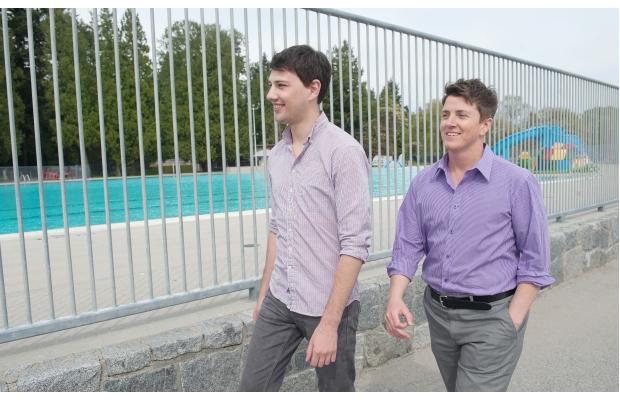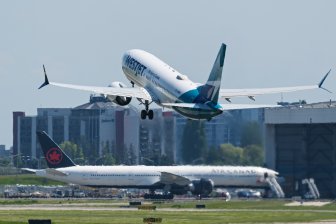Vancouver parks and pools may soon see unisex washrooms.
The model of separate men’s and ladies’ rooms doesn’t suit many in the transgender and gender-variant communities, so park board commissioner Trevor Loke has floated the idea of changing washroom configurations, signage and some pool programming to suit this community and others.
Loke, who is the parks board liaison with Vancouver’s LGBTQ committee, will be putting forth a motion at the board meeting Monday evening to explore how Vancouver can become the world’s most inclusive jurisdiction for transgender and gender-variant communities.
If approved, a working group would be struck to consult with the community and report back to the park board by April 1 of next year.
Loke said he’s had positive feedback from other commissioners and park board staff.
At the age of 22, he became the youngest elected official in Vancouver history when he won a seat on the park board in November of 2011. Since then, he says he has learned from the trans- and gender-variant communities about barriers they face when trying to access public recreation spaces.
“The most common one is around washrooms,” he explained. “When somebody is trans, goes into a washroom, and it doesn’t matter which one they go into, they are not made to feel welcome in either.” He added, “There have been instances of both verbal and physical harassment.”
Drew Dennis, who identifies as transgender and is a member of the city’s LGBTQ committee, has experienced this firsthand. The problem appears to be universal. While visiting Barcelona, Dennis, needing to use a washroom, went into one reserved for people with disabilities, only to be severely berated by someone outside for being able-bodied and using the facility.
“It’s an incredible step forward that the city and the parks board are looking at how they can make parks and recreational facilities a welcoming space for everyone in our city,” said Dennis, who was born female but doesn’t identify as either male or female. Having had chest surgery a decade ago, Dennis wears men’s swim trunks when visiting public pools. But having elected not to take male hormones, the transition was never complete.
There are all kinds of issues “for somebody like myself or for someone who might be in the process of transitioning from female to male or from male to female.”
Neither Loke nor Dennis is entirely sure what the washroom configuration should be. Much will depend on the consultation process.
“We could see anything from universal washrooms which is universal in a gender sense but also universal in the accessibility sense for people living with disabilities,” said Loke.
Dennis is suggesting a washroom space for everyone with private stalls and a shared sink area, pointing out that some restaurants and coffee shops are already moving in this direction.
Then there is the issue of signage and printed material. Loke isn’t sure how that should be changed. He is awaiting feedback.
Dennis gave one example. Perhaps there could be a note below the wheelchair-accessible sign on washroom doors stating that members of the transgender or gender-variant communities are welcome to use these facilities. This might help prevent unpleasant experiences like the one in Barcelona.

“A whole multitude of users might want to use the washroom,” Dennis said. For example, “if you are a caregiver providing care to someone of the opposite gender.”
Besides washrooms, Loke and Dennis are hoping to see greater accessibility to pools with non-peak times set aside for “all body swims” not only for the transgender and gender variant communities, but for anyone with self-esteem or body image issues. These have been tried on an experimental basis at various pools in the city and have proven quite successful, Loke said.
Given the park board’s duty to promote active healthy living, he sees it as an extension of the public health system. That involves reducing barriers for communities that have not felt comfortable in public parks and recreation facilities.
“We’re all individuals,” said Dennis, explaining why a world divided along gender lines doesn’t always work. “We’re all snowflakes. There are no two alike.”
- Man arrested in deadly White Rock Promenade stabbing that shocked community
- Disturbing evidence admitted in voir dire hearing for B.C. man accused of killing wife
- B.C. secures 8 new middle-income housing sites for BC Builds program
- ‘I came for hard work and I found it’: Bootcamp underway for BC Wildfire Service recruits



Comments